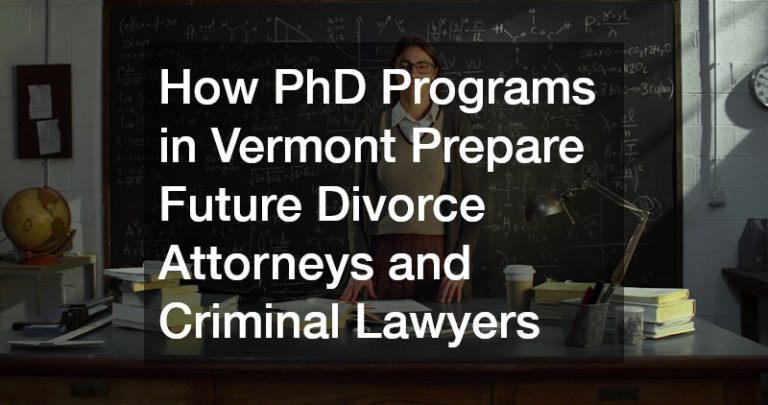
When legal issues arise, knowing where to turn can be overwhelming, especially if you’re not sure what kind of lawyer is best suited for your situation. From family disputes and immigration challenges to criminal accusations and financial troubles, the legal world is full of specialized professionals who each bring a unique set of skills to the table. This blog is designed to help you determine what kind of attorney you may need based on the legal challenges you’re facing. By breaking down key practice areas, you’ll know which legal path to follow and which expert is most qualified to represent your interests.
The legal profession is diverse and includes many types of litigators, each trained to navigate the complex rules of courtrooms, negotiations, and case law. Not all lawyers are litigators, and not all litigators work in every legal area. For instance, a divorce attorney may focus on settlements and child custody hearings, while a criminal defense attorney is more often seen arguing cases before a judge or jury. Some attorneys, like those specializing in elder law or estate planning, may rarely enter a courtroom at all. Understanding these nuances can help you avoid wasting time or money by seeking the wrong type of legal help.
In this article, we’ll explore ten distinct types of legal representation that correspond with common real-world needs. Next, we will identify one specific type of legal professional and explain what they do, how they operate, and when you might need their services.
By the end of this blog, you should feel confident in identifying the correct legal professional for your situation. Whether you’re navigating a personal, financial, or legal crisis, understanding the types of litigators available can be the first and most important step toward resolving your issue effectively and efficiently.
Divorce Attorney Help
Divorce is one of the most emotionally and legally complex events a person can experience. The dissolution of a marriage often involves child custody, property division, and spousal support—all of which require legal navigation. A divorce attorney plays a crucial role in protecting a client’s rights while seeking a fair and lawful resolution. For many people, choosing the right representation during a divorce can mean the difference between an equitable outcome and an ongoing legal battle.
Specifically, a divorce attorney works within family courts to negotiate custody agreements, divide assets, and formalize child or spousal support arrangements. These professionals often function as negotiators and mediators, but when necessary, they also present arguments before a judge. If the divorce involves contested issues, high-value property, or accusations like abuse or infidelity, an experienced divorce attorney becomes even more essential. They understand the procedural rules and emotional sensitivities surrounding divorce, and they use this knowledge to advocate for their clients effectively.
As one of the more commonly encountered types of litigators in family court, divorce attorneys must balance legal strategy with interpersonal understanding. Their work can be emotionally taxing, but it also requires attention to detail, sound legal advice, and courtroom readiness. Whether you’re contemplating divorce or already in the midst of one, having an attorney who specializes in this area ensures you’re making informed, legally sound decisions.
Family Law Guidance

Family law covers a wide array of legal matters beyond divorce, such as child custody, adoption, and guardianship. A local family lawyer is someone who understands the nuances of your state’s specific laws and can represent clients in everything from domestic disputes to paternity tests. This type of legal professional helps clients navigate personal transitions that often carry long-term emotional and financial implications.
When dealing with issues like custody battles or protective orders, a local family lawyer can file motions, attend hearings, and negotiate settlements. Their involvement becomes crucial when tensions run high and children’s well-being is at stake. These attorneys are deeply familiar with local court systems, judges’ preferences, and county-specific filing requirements, making them well-suited for regionally sensitive cases.
As types of litigators who operate within emotionally charged environments, family lawyers must combine legal precision with compassion. Their role is not only to represent but also to help families reach solutions that work in both the short and long term. If you’re dealing with any domestic legal matter, having a professional who understands both law and community dynamics can make a significant difference.
DUI Attorney Advice
Driving under the influence (DUI) is a serious offense that can lead to license suspension, hefty fines, and even jail time. If you’re facing DUI charges, hiring a dui attorney should be a top priority. These attorneys specialize in defending individuals accused of impaired driving and work to reduce or dismiss penalties wherever possible.
A DUI attorney examines every detail of your case, including police procedures, breathalyzer calibration, and arrest protocol. They may argue that evidence was improperly collected or that your rights were violated during the stop. Many DUI cases are resolved through plea deals, but when necessary, a skilled attorney will take the case to trial to advocate for reduced consequences or a not-guilty verdict.
As types of litigators, DUI attorneys have expertise in both traffic law and criminal defense. They’re often aggressive advocates with a deep understanding of local law enforcement practices. If you’ve been charged with a DUI, it’s vital to consult with someone who knows how to dismantle the prosecution’s case and protect your driving record and reputation.
Citizenship Support

Immigration is a complex and often overwhelming legal field. A citizenship attorney is essential when you’re seeking lawful permanent residence, naturalization, or asylum. These attorneys specialize in navigating U.S. immigration laws and represent clients in applications, interviews, and hearings before immigration judges.
A citizenship attorney can assist with green card filings, prepare you for your naturalization exam, or help contest a denial. They also provide critical support if you’re at risk of deportation or facing an immigration-related criminal charge. Mistakes in paperwork or missing a deadline can derail your path to citizenship, making legal guidance indispensable.
Although many immigration attorneys do not frequently enter courtrooms, they are considered types of litigators when handling asylum appeals or removal proceedings. Their work is crucial for individuals trying to achieve legal status or protect their families from separation. Whether you’re new to the immigration process or resolving a long-standing case, having a skilled attorney on your side ensures accuracy and advocacy.
Estate Planning Law
Preparing for the future includes making decisions about your assets, health care preferences, and dependents. An estate planning attorney helps individuals and families structure legal documents such as wills, trusts, powers of attorney, and advance directives. Their goal is to ensure your wishes are carried out exactly as intended while minimizing taxes and avoiding probate delays.
Estate planning becomes especially important when dealing with high-value assets, business ownership, or blended families. An estate planning attorney can help draft customized documents and advise on legal strategies that protect wealth and ensure smooth asset transfer. They also offer guidance on Medicaid planning and guardianship arrangements for minors or incapacitated adults.
Though they may not always appear in court, estate planning attorneys are still types of litigators when disputes arise over wills or trust administration. In those cases, they represent clients in probate court to resolve inheritance challenges or executor misconduct. If peace of mind and legal clarity are what you seek, working with an attorney in this field is essential.
Slip and Fall Injury

Accidents in commercial spaces like stores and restaurants often fall under the umbrella of premises liability. If you’ve suffered a retail store slip and fall injury, you may need an attorney who handles personal injury claims. These professionals help victims secure compensation for medical bills, lost wages, and pain and suffering due to unsafe property conditions.
Such attorneys investigate the cause of the accident, collect evidence such as surveillance footage, and communicate with insurance companies on your behalf. If a store failed to clean up a spill or neglected to post warning signs, they may be held liable for negligence. A lawyer experienced in slip and fall cases understands how to prove fault and establish damages.
As types of litigators, personal injury attorneys frequently represent clients in civil court. They are prepared to go to trial if a fair settlement cannot be reached. When you’re injured through no fault of your own, having someone who knows how to build a solid legal argument can be the key to a just recovery.
Marijuana Legal Aid
As marijuana laws rapidly evolve across the country, legal representation in this area is becoming increasingly important. A marijuana lawyer specializes in cases related to possession, distribution, cultivation, and licensing compliance. Whether you’re a medical marijuana user, a dispensary owner, or facing criminal charges, this type of attorney can protect your rights.
A marijuana lawyer can challenge drug charges, navigate state licensing requirements, or defend clients accused of illegal growing or transport. These attorneys understand the differences between state and federal law—especially important since cannabis remains federally classified as a controlled substance. They also help cannabis businesses stay compliant with zoning, advertising, and operational laws.
When acting as types of litigators, marijuana lawyers may work in both criminal and civil courts. Their unique cross-section of knowledge makes them essential advocates in an industry filled with legal uncertainty. Whether you’re in the business or simply caught with a joint, the right attorney can make all the difference.
Elder Law Services

As people age, their legal needs become more focused on long-term care, asset protection, and health decision-making. Elder law is a specialized area of legal practice aimed at helping seniors and their families address these issues with clarity and foresight. Attorneys in this field work with clients on everything from guardianship and Medicaid planning to elder abuse claims and housing rights.
An elder law attorney might assist in drafting powers of attorney, setting up living wills, or qualifying a client for government benefits while preserving family assets. They often collaborate with medical professionals and social workers to ensure seniors receive comprehensive care that aligns with their legal protections. In cases where elder abuse or financial exploitation is suspected, these lawyers pursue justice through litigation or protective actions.
As types of litigators, elder law attorneys are uniquely positioned to serve vulnerable populations. They combine compassionate client service with strategic legal knowledge, advocating for the rights and dignity of the elderly. If you or a loved one is navigating age-related legal issues, this is the kind of lawyer who can make a meaningful difference.
Bankruptcy Help
Financial hardship can strike unexpectedly, leaving individuals buried under mounting debt. Chapter 13 attorneys help clients reorganize their finances through a court-approved repayment plan, allowing them to avoid foreclosure or asset seizure. Unlike Chapter 7, which eliminates debts entirely, Chapter 13 offers a structured path to solvency while protecting property.
A Chapter 13 attorney will evaluate your financial situation, file the necessary paperwork, and represent you during confirmation hearings. They help determine feasible monthly payments and negotiate with creditors to reduce interest or eliminate penalties. Their role is vital in making sure that debtors stay in compliance with the plan over the course of three to five years.
These attorneys are considered types of litigators because they operate within the bankruptcy court system, representing clients in hearings and managing disputes. When faced with financial ruin, working with a lawyer who understands the nuances of bankruptcy law can provide relief, stability, and a fresh financial start.
Criminal Defense 101
If you’ve been accused of a crime, your first call should be to a criminal defense attorney. These lawyers defend clients charged with offenses ranging from misdemeanors to felonies. Their job is to protect your constitutional rights, analyze the prosecution’s case, and build a strong defense to achieve the best possible outcome.
A criminal defense attorney will conduct independent investigations, challenge evidence, interview witnesses, and advise you on whether to accept a plea deal or go to trial. Whether you’re facing charges for theft, assault, or a more serious offense, this attorney’s role is to ensure due process and advocate fiercely on your behalf. They also help clients navigate post-conviction relief options like expungement or appeals.
Among all types of litigators, criminal defense attorneys are some of the most visible in court. They are skilled at cross-examination, jury persuasion, and constitutional law. If you’re in legal jeopardy, hiring a competent defense lawyer isn’t just wise—it’s your legal right.
Making the Right Legal Match
Legal challenges can strike at any point in life, from a sudden injury or DUI charge to a more planned event like preparing your will or applying for citizenship. Choosing the right attorney for your specific situation is a critical first step toward protecting your rights and achieving a favorable resolution. This blog has introduced ten common legal practice areas, each represented by a distinct type of legal professional equipped to handle specialized challenges.
Understanding the different types of litigators is essential because legal issues are rarely one-size-fits-all. For example, while a criminal defense attorney may shine in court, they won’t be the right choice for someone navigating a divorce or trying to gain citizenship. Similarly, a marijuana lawyer may be familiar with evolving drug laws but won’t have the tools to guide you through elder care planning or financial bankruptcy. Each legal scenario demands its own expertise, and working with the right attorney maximizes your chances of success while minimizing unnecessary stress and delays.
Some attorneys operate behind the scenes, drafting documents and advising clients, while others are trained to argue cases before judges and juries. Whether you’re dealing with emotional issues like child custody, financial strain from unpaid debts, or even business liability from a slip and fall case, there’s a legal specialist out there ready to guide you. Taking time to evaluate your situation and align it with the correct legal support can turn a crisis into a manageable—even solvable—problem.
What type of lawyer you need depends entirely on the nature of your legal issue. With so many types of litigators available—each with their own focus and approach—it’s worth investing the time to choose carefully. Armed with the information in this article, you’ll be able to assess your needs more clearly and take the next step toward resolving your legal matter with confidence and care.






